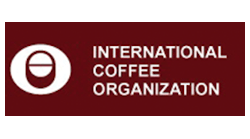ICO: Downward Correction In Coffee Market As Supply Prospects Improve
Source ICO

The recent rally in coffee prices underwent a notable reversal in November 2016, attributed to improved weather prospects in Brazil and Vietnam and a concurrent depreciation in the Brazilian real. This has reduced concerns over future supply, although the market has been in deficit for the last couple of years and prospects for Robusta production are still less than optimal, the ICO reports. Nevertheless, current availability of coffee remains sufficient, with total exports of 112.4 million bags over the last 12 months.
After reaching a 23 month high of 155.52 US cents/lb on 7 November, the daily price of the ICO composite indicator fell precipitously to a low of 137.01 cents towards the end of the month, down by over 18.5 cents. This decline was attributed to improving prospects for future supply, along with a depreciation in the Brazilian real after several months of appreciation. Despite this downward trend, the monthly average for November settled up by 2.2% on 145.82 cents, its highest level since January 2015.
The decline in daily prices was most evident in the three Arabica group indicators, which all fell by around 25 cents from high to low over the course of November. The Robusta group dropped by 8 cents in daily terms but settled mostly unchanged compared to the October monthly average. The daily arbitrage between the New York and London futures markets narrowed significantly to around 60 cents by the end of November, while price volatility spiked considerably.
Exports for the first month of the new coffee year (October) were 1.9% lower than last year on 9.1 million bags. Shipments of Arabica were 4.7% higher, while Robustas were 12.9% lower, despite an increase in exports estimated from Vietnam. Robusta availability from Brazil has dropped to negligible levels as lower output so far this year has squeezed the domestic market.
Exports from Peru continued their strong performance in recent months, with exports for the first seven months of their crop year (April to October) up by 31.2% compared to 2015/16,reaching nearly 2.5 million bags, suggesting that production this year has improved considerably.
Colombia has also started the year in a positive fashion, with production in the first two months of the year (October and November) coming to just over 3 million bags, which is the highest volume for the period since 1998. This also means that total production by Colombia over the last 12 months has reached 14.4 million bags, compared to 13.8 million in the previous period.
However, the potential of heavy rains if La Niña develops in early 2017 could have an impact on the crop.
In summary, while supplies over the last couple of years have been running a little short, with deficits in both 2014/15 and 2015/16, there is some potential for recovery in 2016/17, particularly in Arabica. Output of Robusta is still expected to fall, with lower crops anticipated in most major producers, but prospects for Arabica are more positive.





